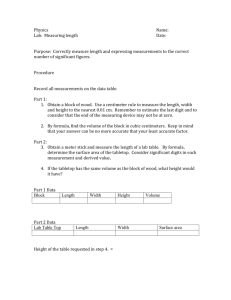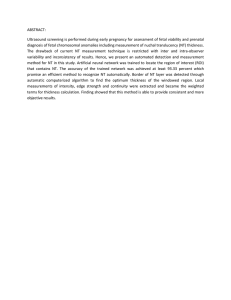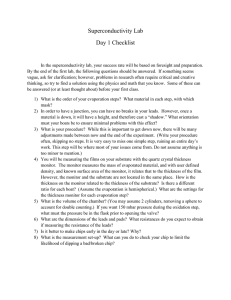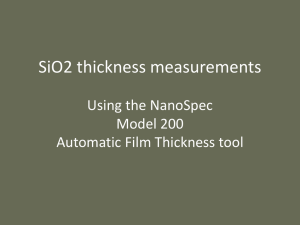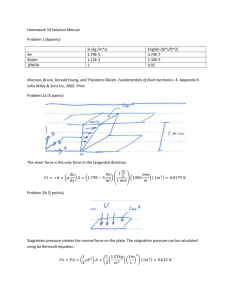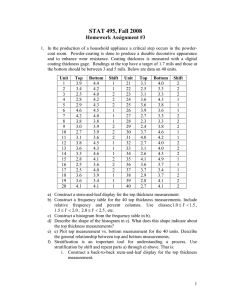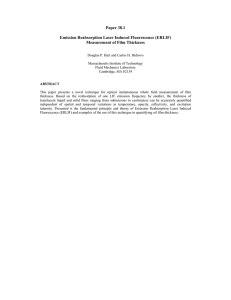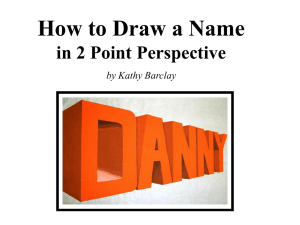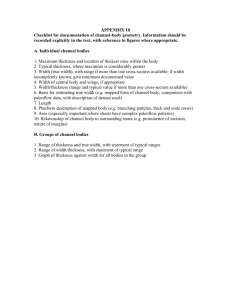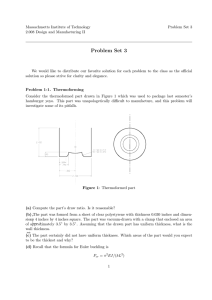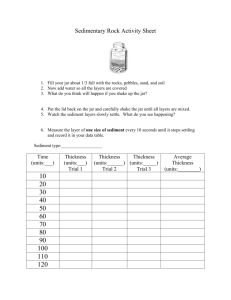Experiment: To become Familiar with methods of Measuring Length
advertisement
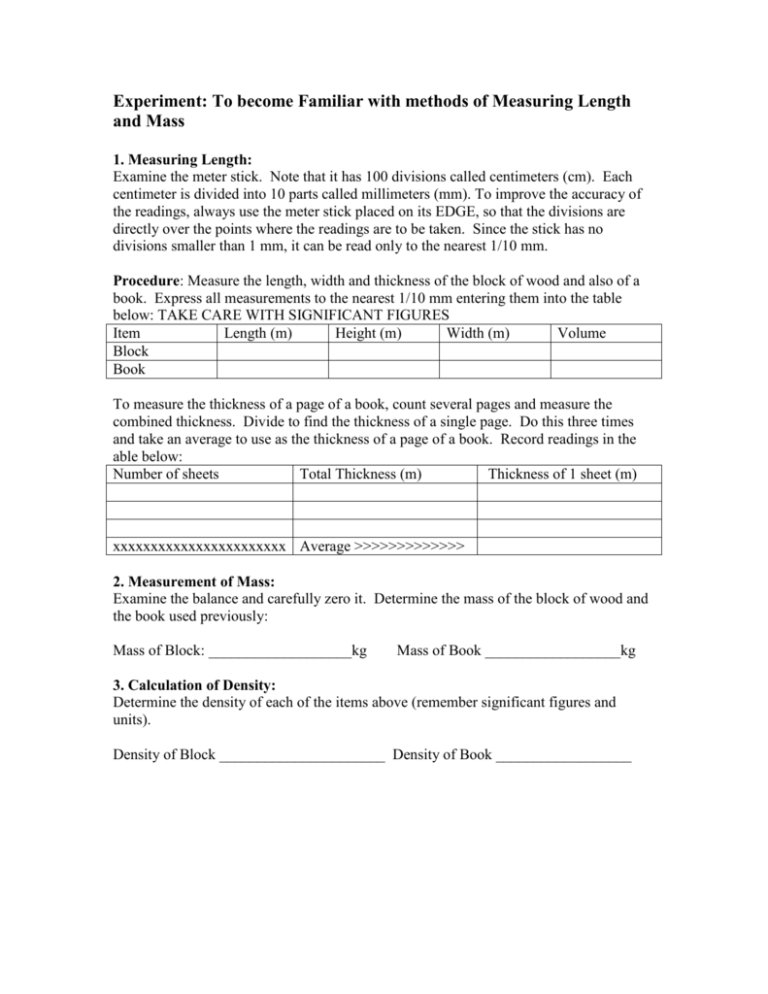
Experiment: To become Familiar with methods of Measuring Length and Mass 1. Measuring Length: Examine the meter stick. Note that it has 100 divisions called centimeters (cm). Each centimeter is divided into 10 parts called millimeters (mm). To improve the accuracy of the readings, always use the meter stick placed on its EDGE, so that the divisions are directly over the points where the readings are to be taken. Since the stick has no divisions smaller than 1 mm, it can be read only to the nearest 1/10 mm. Procedure: Measure the length, width and thickness of the block of wood and also of a book. Express all measurements to the nearest 1/10 mm entering them into the table below: TAKE CARE WITH SIGNIFICANT FIGURES Item Length (m) Height (m) Width (m) Volume Block Book To measure the thickness of a page of a book, count several pages and measure the combined thickness. Divide to find the thickness of a single page. Do this three times and take an average to use as the thickness of a page of a book. Record readings in the able below: Number of sheets Total Thickness (m) Thickness of 1 sheet (m) xxxxxxxxxxxxxxxxxxxxxxx Average >>>>>>>>>>>>> 2. Measurement of Mass: Examine the balance and carefully zero it. Determine the mass of the block of wood and the book used previously: Mass of Block: ___________________kg Mass of Book __________________kg 3. Calculation of Density: Determine the density of each of the items above (remember significant figures and units). Density of Block ______________________ Density of Book __________________
